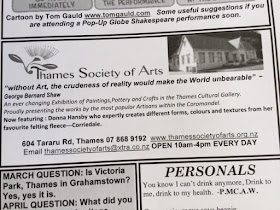The other day I stumbled upon an article on the "Pains of Imprisonment" by a scholar based in Oslo, Norway. The article (allegedly) quotes one of "Shaw's memorable phrases"
“If the prison does
not underbid the slum in human misery, the
slum will empty and the prison will fill."
Since this article did not provide a source for the quotation, and given that I could not find it in my database either, I turned to the Internet as a last resource. It did not take me long to realize that this phrase is quoted a number of times in different documents, from newspaper articles to scholarly books. Luckily for me, one of those books actually cited a source. In this doctoral dissertation on The Relationship Between Mass Incarceration andCrime in the Neoliberal Period in the United States, the quotation is sourced as part of Shaw's The Crime of Imprisonment (1946).
Dan H. Laurence's Soho Bibliography lists this item (first published separately in 1925) and has something else to say about it.
Now that I had the title of the book, I realized that it could not be freely available online because it had been published in 1946. However, as a preface to the Webbs' English Prisons Under Local Government (1922), my chances were much higher.
And... bingo! The Internet Archive holds copies of all the volumes in the series on English Local Government. Specifically, the volume English Prisons Under Local Government contains the famous preface by Shaw and the famous words:
In general terms, I guess this quotation may be related to a number of other works by Shaw (whether essays, speeches, or plays) where poverty is the driving force behind many of the ills of society. I'm sure each reader has their favorite one (please leave a comment about this if you will).
Because this is a very complex topic and I am not an expert on the matter, I would like to direct readers to a couple of recent publications by fellow Shavian Peter Gahan, who edited "Six Fabian Lectures on Redistribution of Income" in SHAW 36.1 ("Shaw and Money") and, more importantly, has published a book that connects Shaw, the Webbs, and the problem of poverty and social inequality (Bernard Shaw and Beatrice Webb on Poverty and Equality in the Modern World, 1905–1914).
The day will come when both the slum and the prison will be empty. At least, I hope so.












